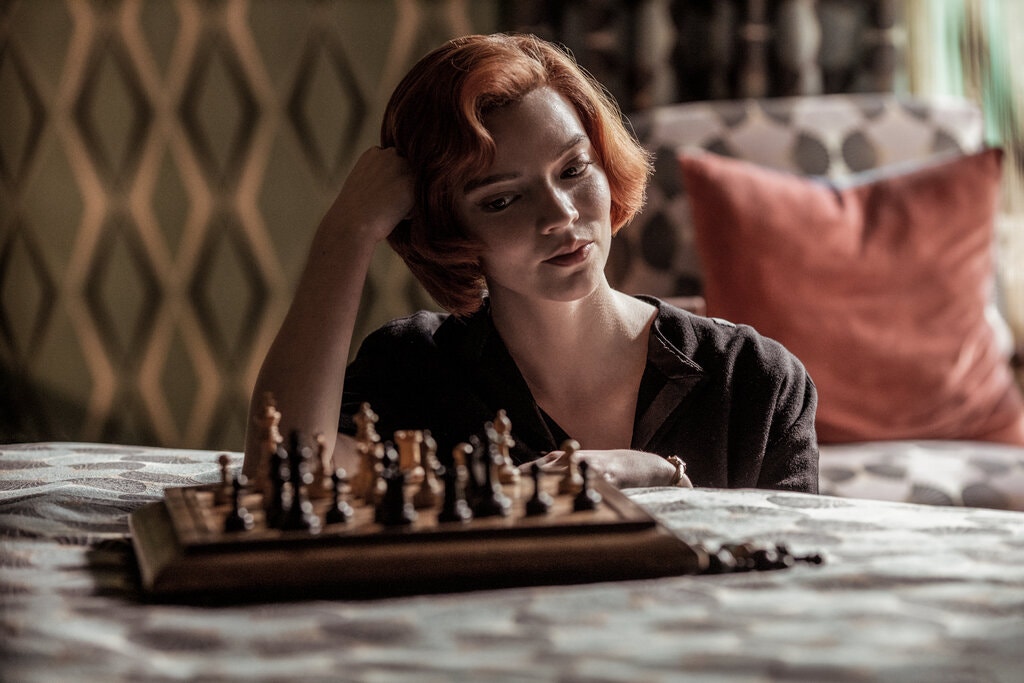I don’t know how to play chess, but I was riveted by Netflix’s new seven-part series, The Queen’s Gambit, a mesmerizing drama revolving around a young American woman who wins acclaim as an international chess champion.
Created by Scott Frank and Allan Scott, it held me in thrall from start to finish.
Isla Johnston plays the fictional Beth Harmon, a child prodigy who learns the game from the monosyllabic janitor at her Christian orphanage in Kentucky in the 1950s. Sent there after her mother is killed in a car accident she miraculously survives, Harmon stumbles upon chess quite accidentally and masters it to a brilliant degree.
Poised and intelligent, she takes to chess like a duck to water. Shaibel (Bill Camp), the custodian, is initially loathe to be her teacher, but as he realizes she’s enormously gifted, he continues to instruct her in its arcane mechanics.
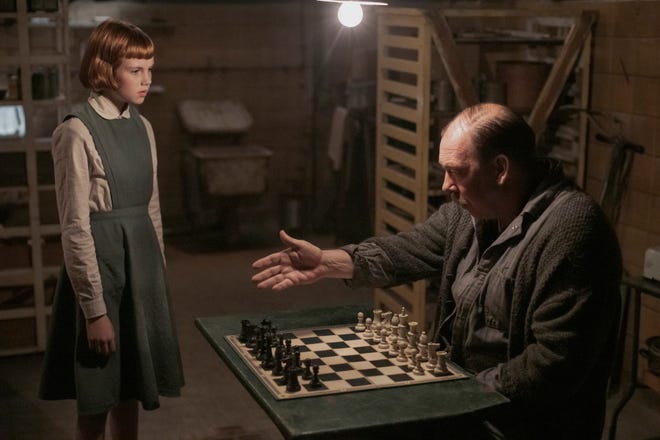
Soon enough, she is thrashing him in a succession of impromptu games. But as she develops an obsession for chess, she becomes addicted to tranquillizers and alcohol.
Shaibel advises her to compete in a local chess tournament. Of course, nobody takes her seriously, a conceit that heightens the tension to the straining point. Handily defeating one competitor after another, she then beats state champion Harry Beltick (Harry Melling). These scenes are absolutely absorbing.
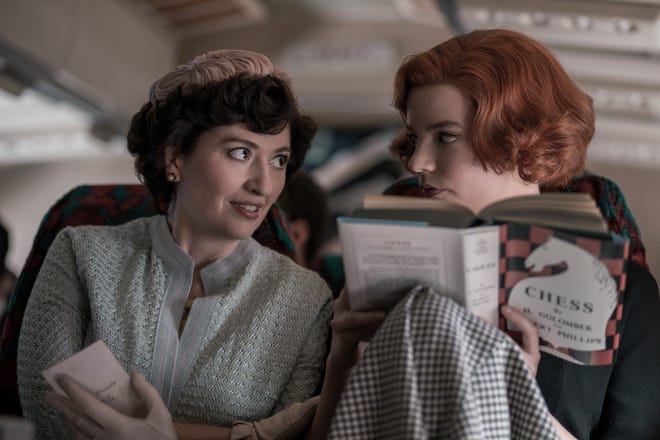
A middle-aged, middle-class couple, Allston and Alma Wheatley (Patrick Kennedy and Marielle Heller), adopt Harmon. She’s happy to leave the orphanage, but sad to say good-bye to her African-American friend, Jolene (Moses Ingram).
Allston, a self-absorbed travelling salesman, ignores Harmon, but Alma embraces her as a daughter and ultimately encourages her to participate in chess competitions in and out of the state.
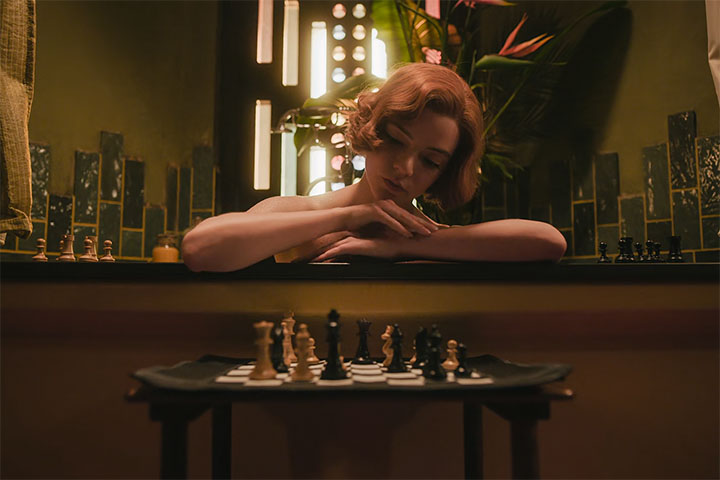
Now played by Anya Taylor-Joy, Harmon evolves into an attractive young woman drawn to fashionable clothes. Willowy and cool in demeanor, she more often resembles a model than an aspiring chess phenomenon. Taylor-Joy is superb in this demanding role. Johnston portrays the young Harmon with elan. The rest of the cast rises to the occasion.
Quickly ascending the ranks of chessdom, Harmon effortlessly outplays a competent opponent, Townes (Jacob Fortune-Lloyd), to whom she is attracted romantically. Then she outclasses Benny Watts (Thomas Brodie-Sangster), the reigning U.S. champion. Watts is neither bitter nor jealous. Indeed, he helps her improve her game, as does Beltick.
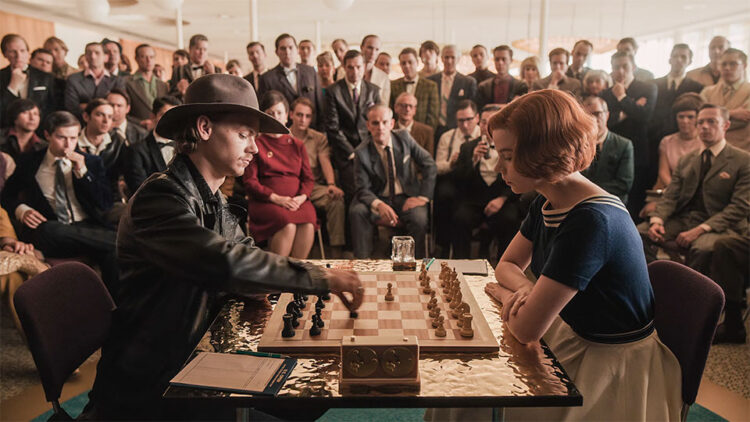
The Queen’s Gambit, which ends in the late 1960s, ascends to spectacular heights when Harmon matches wits with Vasily Borgov (Marcin Dorocinski), the Russian grandmaster who holds the world title.
Calm and collected, and supported by a remarkable entourage, Borgov is a formidable competitor. Harmon and he play three games, and the atmosphere is palpable. To win, she must overcome her addictions and play unpredictably.
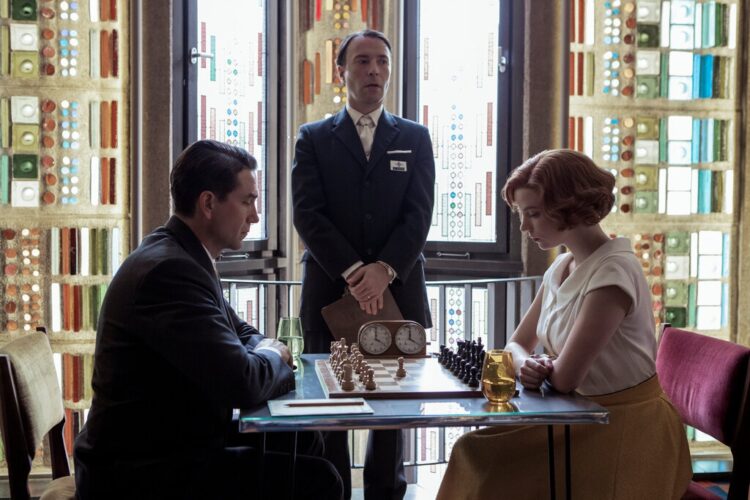
The Queen’s Gambit, filmed in Canada and Germany, is something of a primer on classic chess positions such as the Sicilian Defence. It also, glancingly, introduces viewers to a panorama of legendary players, whose maneuvers Harmon commits to memory.
My knowledge of chess is rudimentary, but after watching this highly engaging series my appreciation of this cerebral sport has deepened.
